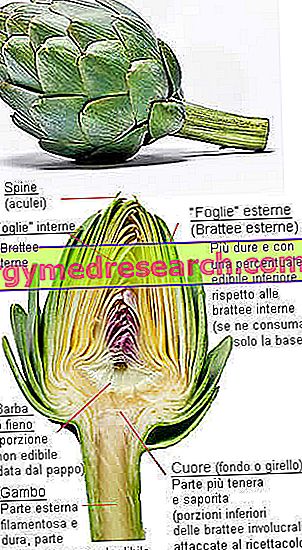CORTONE ® is a drug based on Cortisone acetate
THERAPEUTIC GROUP: Non-associated systemic corticosteroids
IndicationsAction mechanismStudies and clinical effectiveness Usage and dosage instructionsWarnings Pregnancy and lactationInteractionsContraindicationsUndesirable effects
Indications CORTONE ® Cortisone
CORTONE ® is used in the treatment of acute and chronic inflammatory diseases that require systemic corticosteroid therapies.
The biological action of its active ingredient can also be useful in the management of symptoms in allergic and neoplastic conditions.
Mechanism of action CORTONE ® Cortisone
CORTONE ® is a cortisone-based drug, glucorticoid normally produced by the fascicled area of the adrenal glands, and known for its multiple metabolic and immunomodulatory activities.
More precisely this hormone is able to:
- act on the intermediate metabolism, increasing the availability of glucose, inducing proteolysis and lipolysis, thus placing the organism in an energetically active state, useful for overcoming possible stressful conditions;
- Altering the normal water / electrolyte balance, increasing sodium reabsorption and excretion of potassium and calcium;
- Induce vasoconstriction at the level of the microcirculation.
Despite these numerous biological functions, cortisone and its derivatives are used in the clinical setting for the important anti-inflammatory effects capable of extinguishing the inflammatory process upstream, inducing the expression of lipocortin, inhibiting activation processes and cell proliferation and repressing the transcription of cyclooxygenase 2.
In other words, the activity of cortisone ensures a significant decrease in pro-inflammatory mediators derived from arachidonic acid and reduces the number and activity of cells involved in the inflammatory process.
After its action with a half-life of about 30 minutes, cortisone is metabolised to the hepatic level with formation of hydrocortisone, glucoronate and subsequently eliminated via the kidney.
Studies carried out and clinical efficacy
1. CORTISONE IN POST-TRAUMATIC DISORDERS FROM STRESS
Post-traumatic stress disorder and phobias is one of the most frequent states of anxiety among psychiatric illnesses that significantly reduces the quality of life worsening social relationships. In these cases the administration of a single oral dose of cortisone one hour before the symptom assessment has ensured a significant attenuation of the disorders, significantly improving interpersonal relationships.
2. CORTISONE AND ATHLETIC ACCIDENTS
The important anti-inflammatory effects of cortisone and other glucocorticoids lend themselves to sports use in the treatment of injuries and musculoskeletal injuries. A careful re-reading of the literature shows how systemic therapy in these cases seems to be devoid of side effects on muscle and ligamentous health, observed instead for local administration
3. CORTISONE AND DOPING: NEW SURVEY TECHNIQUES
The fight against doping has for years been one of the main issues addressed in sports literature. Important advances are being made in the development of more rapid and sensitive detection systems, as in the case of cortisone, whose saliva levels correlate perfectly with free blood levels. Quicker and simpler tests could help the various sports organizations to counter this unsporting and dangerous practice.
Method of use and dosage
CORTONE ® 25 mg tablets of cortisone acetate:
doses and timing of intake vary significantly from individual to individual based on the type of disease, the clinical picture, the presumed duration of therapy and the therapeutic goals to be achieved.
Usually after a first dose of attack a decidedly lower dosage of maintenance is used, which should be calibrated based on the clinical response and the possible presence of side effects.
The need for medical supervision is therefore evident both in the first phases of dosage formulation and in the subsequent maintenance period.
CORTONE ® Cortisone warnings
Treatment with corticosteroids should be fully supervised by your doctor, so as to promptly adjust the dosage to the patient's therapeutic needs.
In fact, variations in the doses used could be required in patients subjected to particular stressful conditions, in the presence of manifest side effects and in the event of a reduction in symptoms.
The anti-inflammatory activity of cortisone could reduce the preventive efficacy of immunizing strategies while increasing the risk of reactivation of latent infectious diseases or the development of new infections.
It is important for the patient to know the potential side effects of the therapy in order to recognize them promptly and report to their doctor for possible recourse to immediate remedies.
Particular attention should be given to patients suffering from liver, kidney, cardiovascular, gastro-intestinal, neurological, psychiatric and diabetes diseases due to the ability of these drugs to worsen their clinical manifestations.
CORTONE ® tablets contain lactose, therefore they could cause the onset of gastro-intestinal side effects in patients suffering from reduced lactose tolerance, lactase deficiency and glucose / galactose malabsorption.
Side effects on the nervous system could make the use of machinery and driving vehicles dangerous.
PREGNANCY AND BREASTFEEDING
The absence of adequate clinical trials able to clarify the real safety and toxicity profile of cortisone when taken in pregnancy on fetal health and the presence of experimental evidences that demonstrate the potential harmfulness on the fetus, limit the use of CORTONE ® in pregnancy only when objectively necessary and under strict medical supervision.
It would be good practice to monitor the newborn's adrenal function to ascertain the absence of therapy-induced hypoadrenalism.
Interactions
Although from a clinical point of view, there are no particularly serious interactions, the anti-inflammatory activity of cortisone can be altered by the concomitant administration of NSAIDs, estrogens, isoniazid, methotrexate, theophylline, vitamin A, antacids, amphotericin.
A dosage adjustment should be envisaged in this case and in patients undergoing hypoglycemic or oral anticoagulant therapy.
Contraindications CORTONE ® Cortisone
The use of CORTONE ® is contraindicated in case of hypersensitivity to the active ingredient or its excipients, systemic fungal infections and Herpes simplex, tuberculosis, heart disease and hypertension, peptic ulcer, psychosis, recent intestinal anastomosis, osteoporosis, diabetes, glaucoma and states of immunodeficiency.
Undesirable effects - Side effects
The biological activity of cortisone makes the administration of this drug, especially if at high dosages and prolonged over time, particularly rich in numerous side effects.
The organs and systems most affected by these effects are:
- the musculoskeletal system with increased risk of osteoporosis, spontaneous fractures, myopathies and muscular hypotrophy;
- the cardiovascular system, subjected to a hypertensive effect and to the increased risk of congestive heart failure;
- the gastrointestinal system, which deprived of its protection, can more easily develop ulcers;
- the nervous system, characterized by the increased incidence of neurological and psychiatric effects;
- the endocrine system, subjected to alterations of the hypothalamic-pituitary axis, to alterations of lipidic, glucidic and protein metabolism.
- Eye, skin and kidneys.
Note
CORTONE ® sold only under medical prescription.
The use of CORTONE ® without therapeutic need during sports competitions, constitutes doping.



